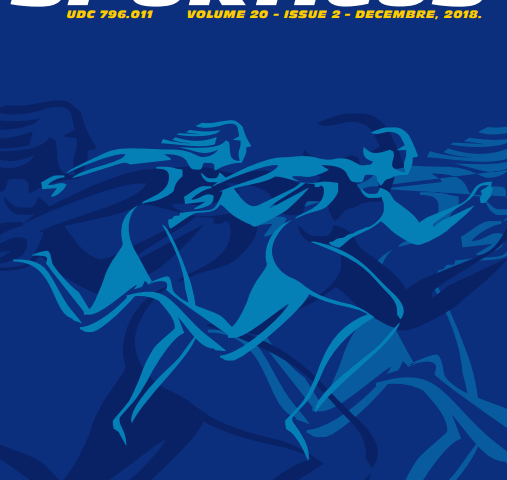Abstract
Previous base in theoretical analysis and the present findings of the research on psychological factors that contribute to the successful sport implementation, specificially the Hypothetical model of success in team sports (Mlacic and associates 2010) we have design this research project in order to integrate the knowledge of the Five-Factor Personality Model (McCrae and Costa, 1992), self-efficacy (Bandura, 1986) and the locus of control (Rotter, 1971) and group cohesion (Corron and associates, 1985) in prediction of a team sport success in football. The aim of this paper is to present the results of a study in which we tested the contribution of individual characteristics (neuroticism, extraversion, agreeableness, openness, conscientiousness, self-efficacy, locus of control and length of football training- as one determinant of experience) and group psychological characteristics (perceived group cohesion) in explanation of team success (placement on the table) of various football selections (junior and senior) in Bosnia and Herzegovina. 417 football players from 12 football clubs in Bosnia and Herzegovina participated in the research. For the assessment of predictor variables were used: Questionnaire on general data of football players, NEO-PI R (Coste and McCrae, 1992) to examine five personality factors, Scale of self-efficacy of football players (Šamija and Bosnar, 2010) to assess self-efficacy in football, Scale of externality , 1990) to examine the locus of control, UGO – R (Carron et al., 1985) to assess group cohesion. The group performance indicator was used as a criterion, which is the position of the team on the table at the end of the autumn part of the competition for the 2016/2017 season. of the Premier League of Bosnia and Herzegovina. We conducted the Hierarchical Linear Regression procedure and concluded that the dimension of neuroticism of the five-factor personality model and group cohesion proved to be significant in predicting team success for seniors. That is, better placed teams on the table have more individuals with greater emotional stability, and have more individuals who are better connected and integrated with each other. The research confirmed that greater group cohesion, external locus of control and longer football training are important for the forecast of the position on the table for junior teams. The set model of individual and group characteristics did not have an equal contribution to success in football among juniors and seniors.
Key words: individual and group psychological characteristics, football, success.


